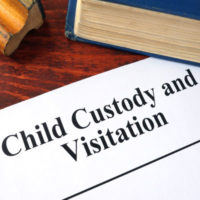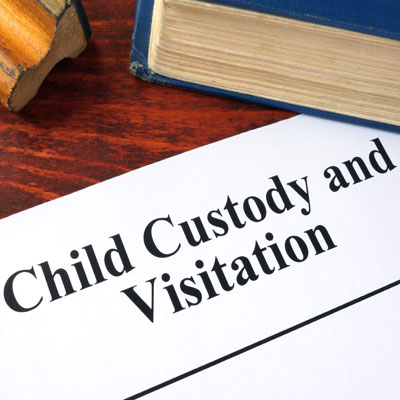 New Jersey’s Division of Child Protection and Permanency (DCPP) is tasked with protecting the state’s most vulnerable children. The agency not only investigates allegations of abuse, but also provides safe foster homes for children in danger and works to get parents the help they need to reunify the family. DCPP intervention can be traumatic and stressful for everyone involved. Their goal is to reunify a healthy family where children can thrive. Visitation with your child reinforces those family bonds that will see you through this tough time.
New Jersey’s Division of Child Protection and Permanency (DCPP) is tasked with protecting the state’s most vulnerable children. The agency not only investigates allegations of abuse, but also provides safe foster homes for children in danger and works to get parents the help they need to reunify the family. DCPP intervention can be traumatic and stressful for everyone involved. Their goal is to reunify a healthy family where children can thrive. Visitation with your child reinforces those family bonds that will see you through this tough time.
New Jersey DCPP Cases and Visitation Rights
A DCPP investigation has a few possible outcomes:
- It can be closed without any further action
- You can be ordered to comply with certain rehabilitative programs and services
- The state can remove children from the home on a temporary or permanent basis
If the DCPP determines your children are in imminent danger because of abuse or neglect, they can remove them from the home immediately. If that occurs, you are entitled to a hearing within two days where a judge will assess if the removal stands. It is essential to have experienced legal representation throughout this process to protect the rights of every family member involved. If the DCPP removes your children, they are expected to identify relatives who may offer suitable placement and establish a visitation plan for parents to spend time with the children in a safe and comfortable setting.
Child Visitation and DCPP Cases
Family situations that expose minors to abuse, neglect, illegal substances, and criminal activity are not ideal. In those cases, visitation is not feasible. However, for most families, long, frequent, and consistent visitation is beneficial to maintain family bonds and give children the familiarity of contact with parents and siblings.
In New Jersey, parents receive a written visitation plan outlining the place, time, and frequency of visits. Because children are likely to feel comfortable in the home of a trusted family friend or a beloved grandparent, visitation can take place in these familiar places. Parents receive a copy of the visitation plan, with the first visit to occur within five days of the initial placement.
Visits are either supervised or unsupervised, which is determined on a case by case basis. The Division or Court may order supervised visits to:
- Protect the children
- Manage and model positive parenting interactions
- Mediate conflict between parents and children
Supervision can be provided by a family member, friend, third-party agency, or DCPP employee. Because these visits are important to your child’s health and well-being, your New Jersey DCPP lawyer works to ensure regular visitation while advocating for increased parental responsibility and reunification of the family.
New Jersey DCPP Lawyers at the Law Offices of Theodore J. Baker Advocate for Parents Seeking Visitation and Reunification
While agencies like the DCPP have children’s best interests in mind, they do not always have the full picture of complex family dynamics. New Jersey DCPP lawyers at the Law Offices of Theodore J. Baker have extensive experience representing families impacted by DCPP action. We monitor every step of your case to ensure a positive resolution for you and your children. Call us at 856-795-9400 or use the online contact form to schedule an initial consultation today. Located in Cherry Hill, New Jersey, we represent clients throughout South Jersey, including Haddonfield, Marlton, Medford, Moorestown, Mount Laurel, and Voorhees.










